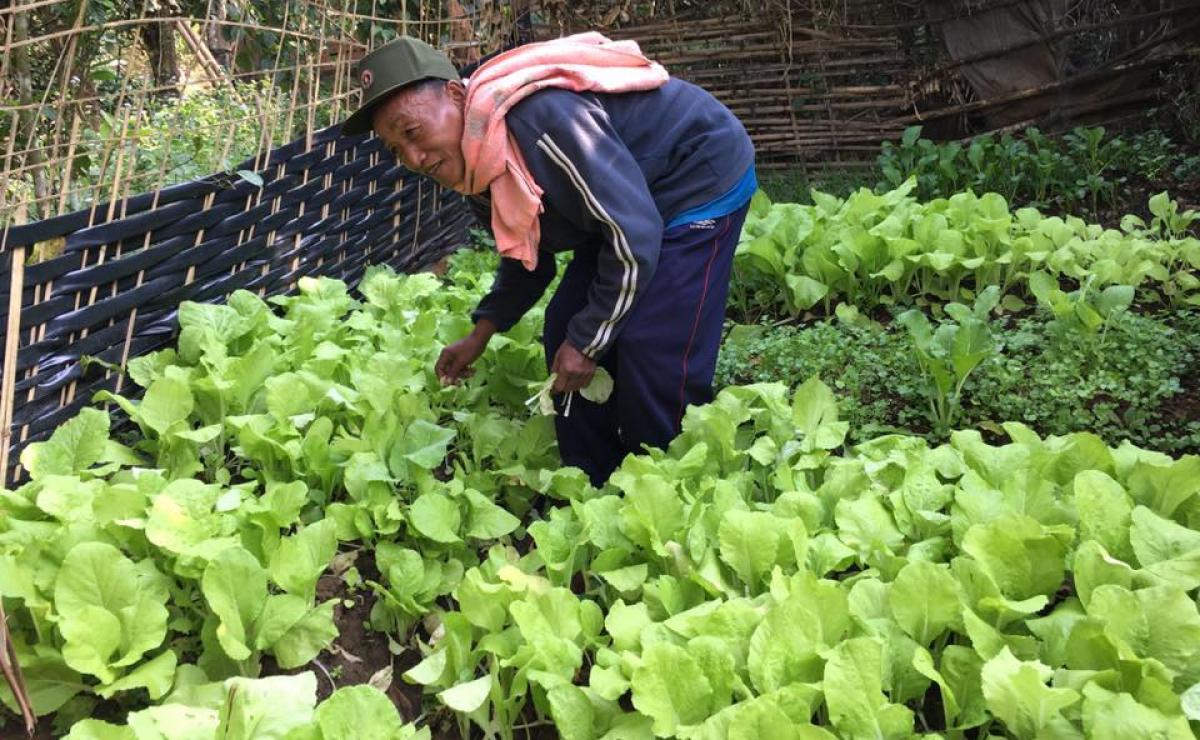Promtoes Sustainable Agriculture Cultivation

Poverty and insufficient food supply is a fact of life for the people of LWF target villages in Viengphoukha district, Luangnamtha province. The consequences of climate change and uneven weather conditions have made their lives more difficult. Additionally, villagers have been suffering from malnutrition as a result of low consumption of and less nutritious food which also make villagers, especially the poorest, more vulnerable. The majority of villagers rely on upland rice farming, wild vegetable collecting and animal husbandry for food security, but frequent droughts and unpredictable rains results in low production and inadequate incomes.
LWF Laos introduced organic gardening near reliable water sources under its Rights Based Empowerment Project (RBEP). As a result of awareness raising campaigns on the harmful effects of agricultural chemicals and vocational training on natural fertilizer production and bio-extract making, villagers are more conscious about health matters and start varying their cultivation techniques with a trend towards safer organic production methods.
Ms. Khut Malaythong, a LWF Laos Community Empowerment Facilitator, said that ‘‘many of the villagers already had experience and skills in vegetable farming before the project intervention but they just don’t know about the negative effects of exposure to chemicals and how to protect themselves and the environment with good practices that are more sustainable and healthier for their lives’’
Mr. Perng, a 55 year old from the Khmu ethnic group, with his wife and 4 children, works in a Chinese watermelon farm that uses chemical fertilizer and pesticides from February to April yearly. Mr. Perng remarks that ‘‘fortunately, I have not been immediately troubled by any health condition when I worked at the watermelon farm but now I’m concerned since I’m aware of the possibilities of health problems to manifest themselves in the future”
After a training, Perng started applying non-chemical fertilizers to his garden. He often makes bio extract and uses organic fertilizers to feed his morning glory, cabbage, garlic, long bean, onion, chilly, pumpkin, and corn. He finds them inexpensive and simple to produce “The vegetables grow very well” Perng said. “I can earn more than 20.000 Kip (about 2 USD) every week from selling vegetables to my neighbors and I use the remaining vegetables for our own consumption” Perng and his wife let some plants go to seed and then dries them to preserve them the next planting. they prefer to conserve traditional seeds as a cheaper a more sustainable way to keep their garden going.

